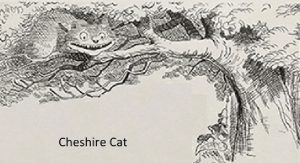Q1. Many advaita teachings suggest that on the absolute level of reality, there are no objects, no people, no selves, and many times, people will say that, ‘from awareness’ point of view, there is just awareness’… However, in my experience it seems that awareness has the ability to know finite objects because ‘I’ (awareness) am the observer of thoughts, feelings, and sensations (all finite objects). So how can we say that from awareness’ point of view there are no objects, when awareness is aware of finite things? To piggyback off of this, is there some way to differentiate between the witnessing position and the absolute viewpoint? because I think this is where I am really getting mixed up.
Q2. Why does it seem that awareness can know something finite when it is infinite? I’ve heard from certain advaita teachers that consciousness takes the form of the mind in order to know finite objects, but this confuses me because that would imply that awareness becomes the mind, but is also simultaneously aware of the mind. It seems a little far fetched in my opinion, but maybe I’m just not understanding it completely.
A: I never use the term ‘awareness’ for precisely this sort of reason. It is a term used by Nisargadatta and his disciples and causes much confusion. I only use it in the context of X being ‘aware of’ Y, in duality.
The non-dual reality in Advaita is called Brahman, strictly speaking. Being non-dual, it has no ‘attributes’ If it had the attribute X, this would mean that it could not be ‘not-X’, which would then negate the fact that Brahman is said to be unlimited or infinite (anantam). You might find the 3-part post beginning https://www.advaita-vision.org/satyam-gyanam-anantam-brahma/ useful.
Continue reading →

